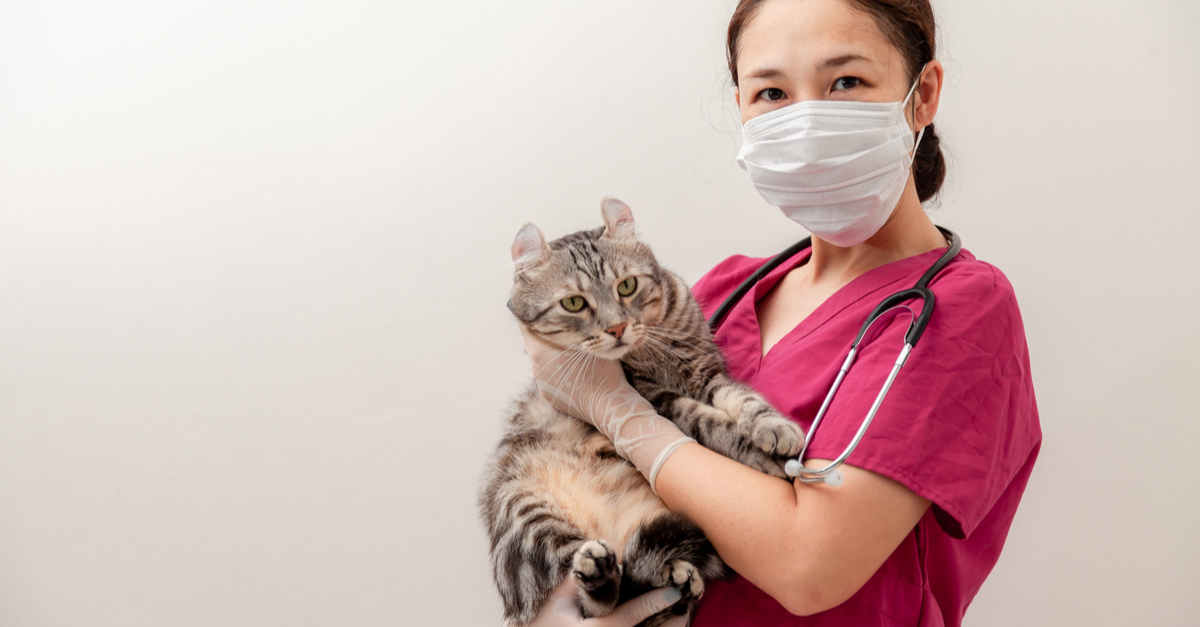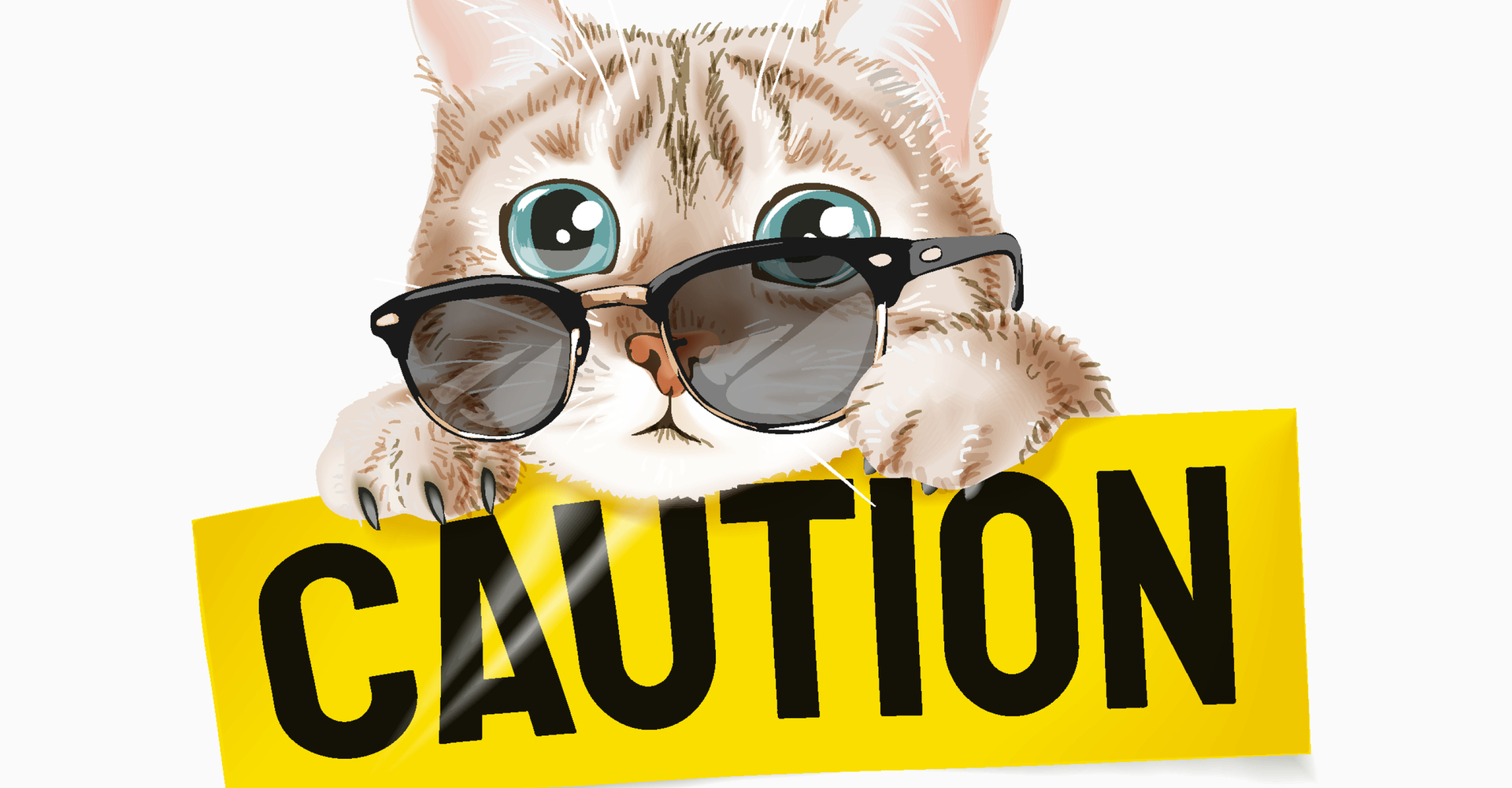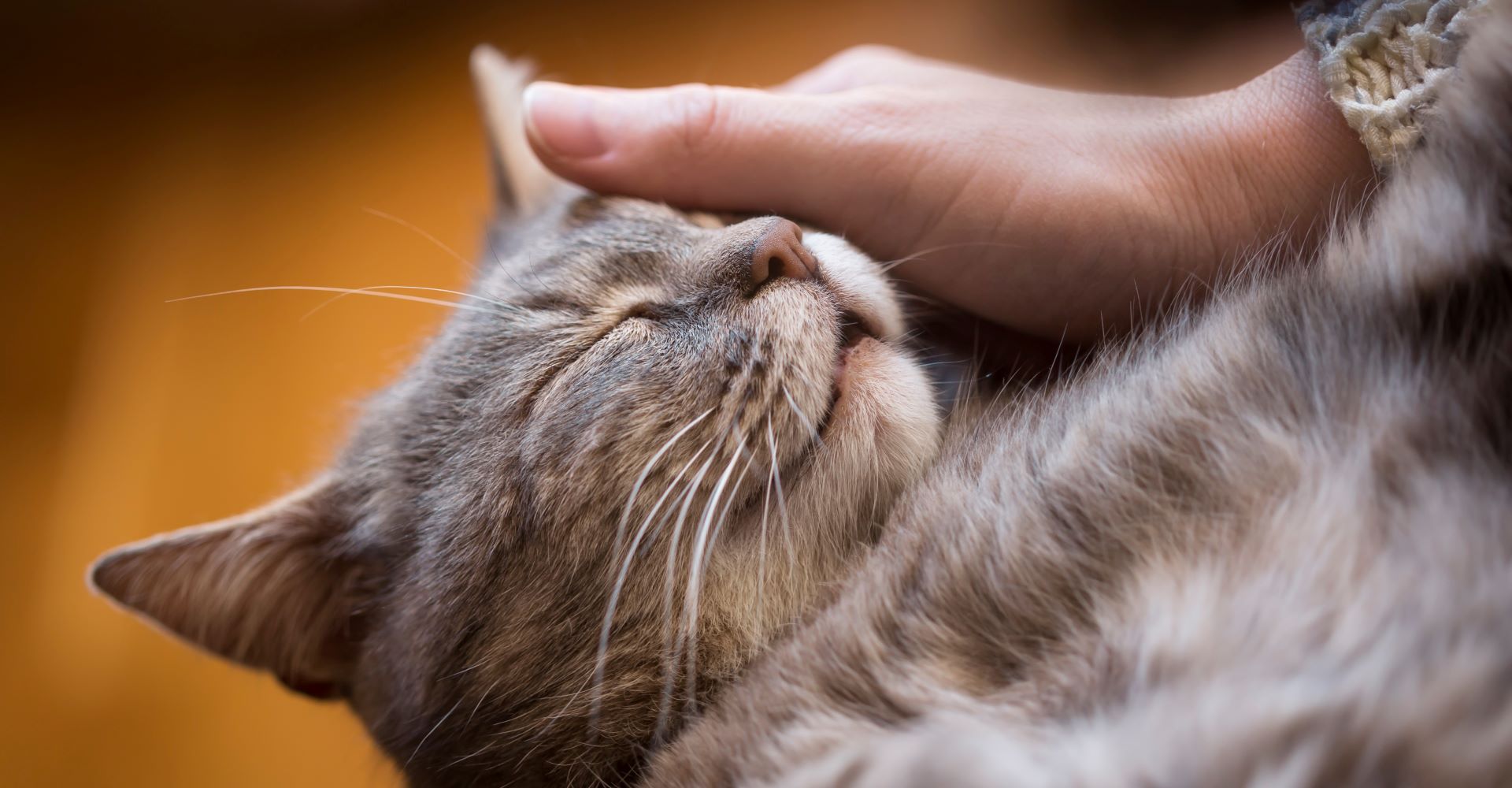CBD for Animals: A Cautionary Note
CBD products are a hot topic in veterinary medicine right now, but it's important to not get ahead of ourselves as professionals with a...
5 min read
Abby Crimm : April 16, 2020 10:49:17 AM PDT

Viticus Group held an insightful online event on April 14 featuring a top veterinary epidemiologist, the former assistant surgeon general, the president of AVMA, and a specialist in veterinary wellbeing.
What we know about COVID-19 differs from week to week, and sometimes from day to day. As new studies and findings give us more information about how COVID-19 affects animals and the veterinary profession, Viticus Group seeks to keep the industry informed.
During an April 14 Facebook live interview and Q&A event (watch it here), veterinary experts discussed what we’ve learned about cats’ ability to get infected and answered viewers’ questions about implementation in the practice and what these findings could mean for the veterinary profession.
Veterinary epidemiologist and writer/curator of wormsandgermsblog.com, Dr. Scott Weese says that thanks to recent laboratory findings, we now know that dogs are not vulnerable to COVID-19. Cats, on the other hand, are capable of being infected by COVID-19. We’ve seen examples of cats getting infected by other cats or even by humans who are COVID-19 positive (the tiger in the Bronx Zoo, for example).
Similar to SARS, cats can get a mild form of the disease and transmit it to other cats. However, there is no evidence that cats can pass the virus to humans. That is a big question mark at this point.
Dr. Weese suggests that veterinary professionals’ communication with clients should focus on the fact that if you are socially distancing your animals from humans outside the household, the humans and pets should be safe. If there’s a person who is COVID-19 positive in the household, other people are more likely to get it from the human, not the cat.
If there’s COVID-19 in the household and a cat shows symptoms, remember to keep the animal at home as much as possible. Dr. Weese says to use telemedicine when possible, or if the cat must be seen, use extra precaution.
Dr. Blackwell is the former assistant surgeon general and has served in many leadership positions representing the veterinary profession. He stresses the importance of veterinarians’ involvement in issues of public health.
Six out of nine of the last impactful infectious diseases in humans came from animals. Dr. Blackwell says we as a profession must embrace the role of veterinarians in the public health system such as in education, prevention, research, regulatory work, and compliance. The current pandemic is a great lesson and an example of this significant role.
Because of the veterinary profession’s obligation to public health, we have to be comfortable talking about zoonotic diseases. People always are going to want to have pets, so it’s part of a veterinary professional’s job to keep everyone safe and informed.
As Dr. Blackwell put it, “Let’s leverage this terrible situation to improve our message around the importance of our profession in safeguarding not only animal health but human health.”
We of all people, he says, understand the limitations of viruses in general and know how to combat them.
Dr. Doug Kratt, as president of the AVMA, discusses the more logistical, day-to-day concerns of veterinary professionals in practice during the COVID-19 crisis.
Veterinary professionals may be wondering, what should we do for clients calling in who are in a COVID-19 positive household? Dr. Kratt says that first and foremost, address their concerns. Is it an important issue that needs to come in right away, or can it wait? Will it be that person that brings the animal in, or can a family member or friend?
If the animal does need medical attention, be sure to put additional precautions in place—things like PPE and avoiding unnecessary contact by giving the client PPE or only bringing the animal into the practice while talking to the client by phone.
As for any questions about the standardization of safety measures, the legal ramifications of telemedicine, or specific protocols, the first place to go to would be the regional organized veterinary medicine. The AVMA COVID-19 webpage is also a gold mine for information, flowcharts, and safety recommendations.
Dr. Kratt also mentions our profession’s obligations to do our part for human health by evaluating what is essential and non-essential for the animals we serve. Lean back on your training to determine if something is urgent, like a case of pain or trauma. Vaccines, remember, are a public health issue and are vastly important for the control of zoonotic diseases.
Veterinary professionals everywhere have to handle homeschooling their children, having limited social interaction, stress from work, and financial challenges often on top of everything else. Dr. Nadine Hamilton, a psychology expert specializing in veterinary professionals, gives us some guidance on how to combat stress.
The first thing Dr. Hamilton mentions is to be actively aware of what is within your control and not within your control. The only things we are completely in control of are how we respond to these situations and our behavior.
Her top recommendation for those who are struggling is evidence-based therapies like acceptance and commitment therapy (ACT), cognitive behavioral therapy (CBT), and other resources you may have in your toolbox such as positive psychology techniques. These are science-based solutions that are proven to make a positive difference.
Here’s a checklist of things Dr. Hamilton recommends to stay sane:
As of now, there are no known transmissions from animals to humans. From a public health standpoint, we need to plan for the possibility, but there is no evidence of that.
The studies showing that cats did get infected and transmit the virus to other cats were inoculations done in a laboratory environment. That evidence is stronger. Cats getting the disease under natural conditions is only anecdotal and rare.
What patients come into the practice (especially if there is a positive case of COVID-19 in the household) should be decided on a case-by-case basis depending on the urgency of the patient’s condition.
We wouldn’t say we needed more PPE for feline patients in general because that’s probably not a great use of scarce PPE. There is no evidence that cats are going to transmit COVID-19 to us.
First, don’t be too quick to assume that the cat has COVID-19. It could easily be another respiratory problem. However, COVID-19 is a reportable disease, so you need approval from your state health department to submit samples.
If a member of your team is tested positive, then you need to contact your public health department for guidelines and to report because again, COVID-19 is a reportable disease.
For any other questions, please reach out to your state health department, the regional organized veterinary medicine, or the AVMA website.
Visit Viticus Group's COVID-19 in Veterinary Practice web page to get more news, updates, resources, and blogs about this novel virus.
Subscribe to our YouTube channel or check out our Resource Library full of great podcasts, videos, and digital downloads!
Disclaimer
Content may contain advertising and sponsorships. Advertisers and sponsors are responsible for ensuring that material submitted for inclusion is accurate and complies with applicable laws. We are not responsible for the illegality of any error, inaccuracy, or problem in the advertiser’s or sponsor’s materials.
Advertising material and/or opinions are not are not a reflection on Viticus Group.

CBD products are a hot topic in veterinary medicine right now, but it's important to not get ahead of ourselves as professionals with a...

On March 23, eleven veterinary leaders gathered and collaborated during an online summit organized by Viticus Group to inform the veterinary...

While osteoarthritis is recognized as a common chronic disease in dogs, research suggests it may be more common in cats than you might think.